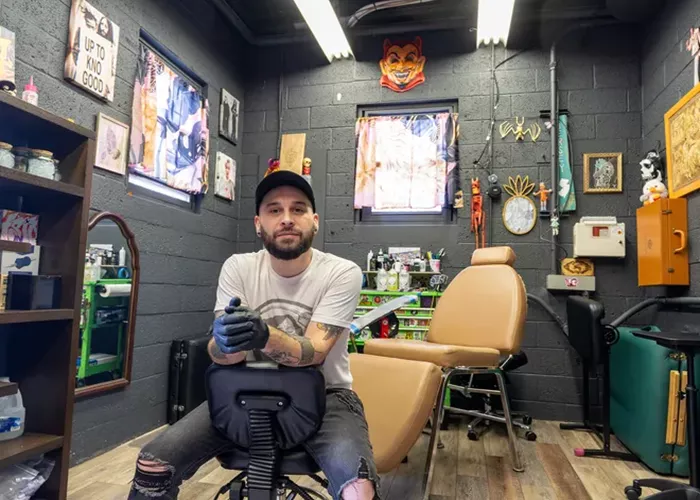Family and friends of Neri Jose Alvarado Borges, a Venezuelan migrant living in Texas, are raising alarms after he was deported to one of El Salvador’s most dangerous prisons, the Terrorism Confinement Center, allegedly due to his autism awareness tattoo. Borges, who had been living in the U.S. while seeking asylum, was detained by Immigration and Customs Enforcement (ICE) in February and sent to El Salvador on March 15.
The tattoo in question is a rainbow-colored ribbon made of puzzle pieces, a well-known symbol for autism awareness, with the name of Borges’s autistic brother inscribed below. However, Borges’s family and friends claim that immigration authorities wrongly interpreted this personal tattoo as evidence of gang affiliation with Tren de Aragua, a notorious Venezuelan gang.
Juan Enrique Hernandez, a friend of Borges, told NBC Dallas-Fort Worth that when Borges tried to explain the meaning of his tattoo and show his asylum papers, he was still sent to prison. “He said, ‘But I have my asylum, I have the asylum [papers] here with me,'” Hernandez recounted. “And they said, ‘No, you’re going to jail because you have a tattoo.'”
Borges had been working at a bakery in Lewisville, Texas, before his arrest by ICE agents at his apartment complex. His friends and employer vouched for his character, describing him as a hardworking, good person. The Dallas County Sheriff’s Office confirmed that there were no local charges against Borges, further raising questions about the justification for his detention and deportation.
The Department of Homeland Security (DHS) and ICE did not immediately respond to requests for comment. However, ICE confirmed Borges’s deportation and the subsequent transfer to El Salvador. His case highlights a troubling pattern in which authorities use tattoos—often common symbols that hold personal significance—as a basis for identifying individuals as gang members, a practice that has drawn criticism for its lack of due process.
Borges’s deportation is part of a broader trend in which the Trump administration has increasingly relied on tattoos and social media posts to justify the removal of immigrants, many of whom have no gang affiliation. This tactic has led to widespread criticism from advocates who argue that such practices unfairly target vulnerable individuals based on superficial markers.
In another high-profile case, Kilmar Abrego Garcia, a Maryland resident under a protective court order, was mistakenly deported to El Salvador last month, sparking national outrage. Despite a court ruling protecting Garcia from deportation, the Trump administration has reportedly ignored judicial orders to return him to the U.S., raising serious concerns about the administration’s disregard for due process and the rule of law.
These cases illustrate the growing concern over the administration’s immigration enforcement tactics and the potential for unjust deportations based on faulty evidence. As these legal challenges mount, critics are calling for greater transparency and a reevaluation of the practices that have led to the wrongful detention and deportation of individuals like Borges, who simply sought safety in the U.S.
The controversy surrounding tattoo-based deportations underscores a critical issue at the heart of the Trump administration’s immigration policies: the balance between national security concerns and the fundamental rights of individuals seeking asylum.
Related topics:

